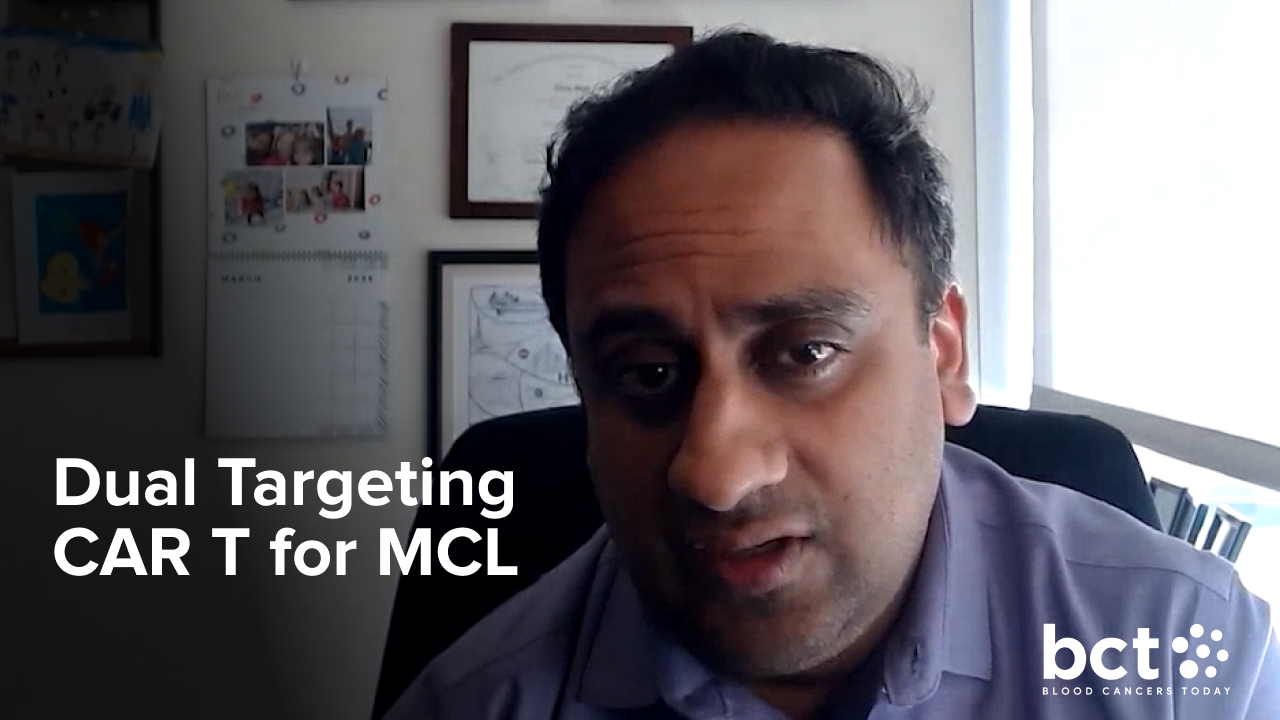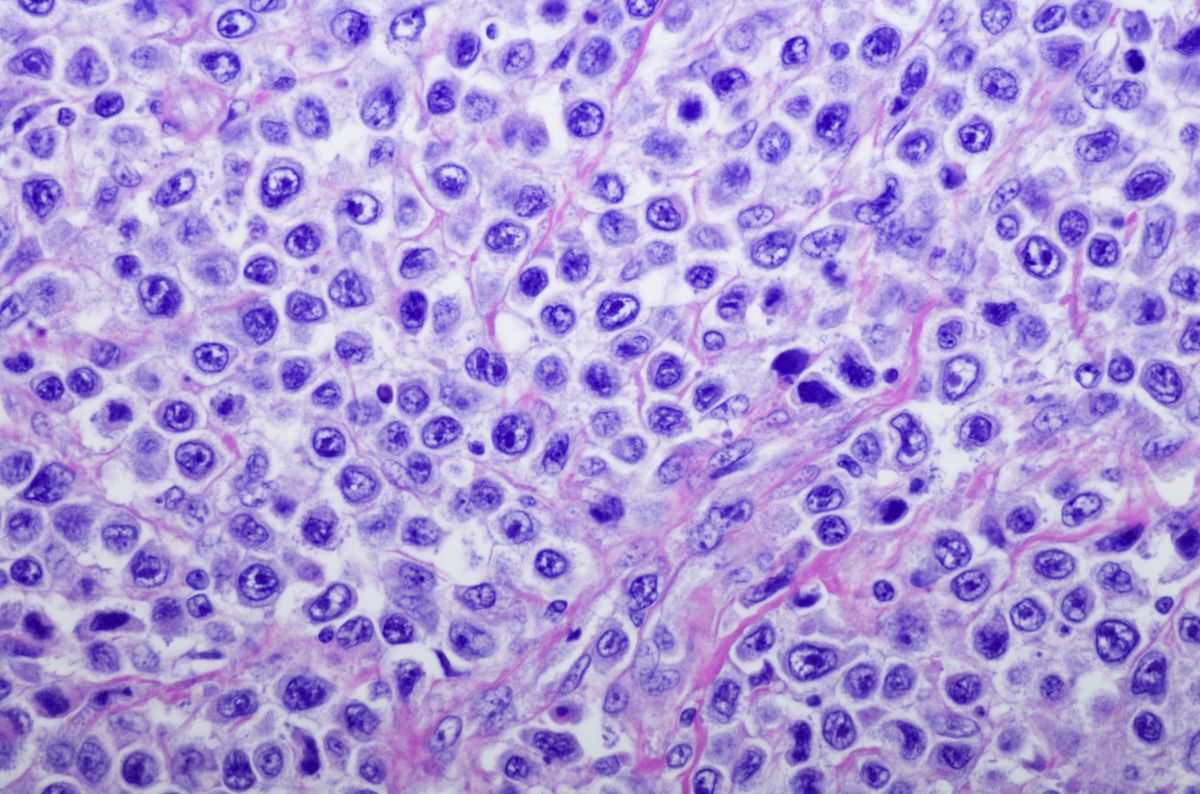
The season of fall is upon us. Fall is considered a time to let go, accept change, make room for new things, thrive, and grow. The practice of medicine, in many ways, can cycle like the seasons do, with scientific discovery challenging our standards and creating opportunities to replace less effective or more toxic therapies with novel treatments.
The time preceding annual scientific meetings is filled with intrigue and excitement. There is the anticipation of practice-changing data to be presented, counterpoints to be debated, and the resulting scientific exchange that moves the field forward. It also serves as a time to reflect on significant advances in the treatment of hematologic malignancies.
As I prepared slides on “Emerging Novel Agents in Mantle Cell Lymphoma” for the Eleventh Annual Meeting of the Society of Hematology Oncology, I reflected on the last decade of treatment advances for mantle cell lymphoma (MCL), from the accelerated approval of the first oral targeted therapy to the recent withdrawal of the US Food and Drug Administration (FDA) indication for that same therapy.
Ibrutinib, a first-in-class Bruton’s tyrosine kinase inhibitor (BTKi), received accelerated approval for the treatment of relapsed or refractory MCL in November 2013. Without a doubt, ibrutinib changed the treatment landscape for patients with relapsed or refractory MCL. The efficacy of ibrutinib in B-cell malignancies was shown in early-phase clinical trials during my hematology/oncology fellowship. The promising efficacy of ibrutinib in various B-cell malignancies resulted in trials evaluating ibrutinib alone or in combination with other agents, and our institution offered several such trials. As an early-career clinical investigator, I was very fortunate to practice in a time that afforded the opportunity to offer patients an effective new therapy. It was a humbling experience when a sick, symptomatic patient with a poor prognosis had rapid improvement of disease burden and symptoms. At the same time, I will never forget the faces and stories of less fortunate patients deemed ineligible for these trials—patients who may have had access to a life-saving treatment if they were diagnosed a year later.
As more patients received ibrutinib therapy, serious adverse events emerged, including bleeding and atrial fibrillation. Clinical trials with acalabrutinib were pursued. As a second-generation BTKi, acalabrutinib is more selective for BTK, resulting in less “off-target” kinase inhibition, which is hypothesized to result in an improved safety profile. Acalabrutinib received accelerated approval for relapsed or refractory MCL in October 2017. Another second-generation BTKi, zanubrutinib, received accelerated approval in November 2019.
While no randomized trials have been conducted in MCL with the various BTKis, clinical trial data suggested similar efficacy but improved safety profiles with the second-generation BTKis, including a lower incidence of cardiac events and bleeding. Those findings were confirmed by randomized trials in other B-cell malignancies. With time, more physicians were electing to treat patients with subsequent BTKis.
Most patients with MCL respond to treatment with BTKis, but nearly all develop resistance. Numerous clinical trials have been conducted to improve outcomes evaluating doublet and triplet combinations in the relapsed setting along with efforts to move BTKis into the frontline setting. Naturally, with ibrutinib being the first available and approved BTKi, the bulk of existing clinical trial data includes ibrutinib.
Resistance to BTKis in MCL is not fully elucidated, with activation of bypass pathways and acquired mutations playing a role. Sequencing approved covalent BTKis (cBTKis) at progression is not effective; however, the first-in-class noncovalent BTKi, pirtobrutinib, demonstrated durable efficacy in patients who progress on prior cBTKi treatment. Pirtobrutinib received accelerated approval in February 2023, offering an effective therapy for select patients with MCL who progress on a cBTKi, including patients unable to receive chimeric antigen receptor (CAR) T-cell therapy and patients who require treatment to bridge to CAR-T. The ongoing phase III BRUIN321 trial randomizes patients with BTKi-naive MCL to pirtobrutinib versus investigator’s choice cBTKi.
In April 2023, almost a decade after the accelerated approval of ibrutinib for relapsed MCL, the indication in MCL was voluntarily withdrawn. This decision was based on results of the randomized, phase III, confirmatory study, the SHINE trial, that evaluated ibrutinib in combination with chemoimmunotherapy plus rituximab maintenance in frontline treatment of older patients with MCL. This trial showed the addition of ibrutinib prolonged progression-free survival (the primary endpoint of the study), but not overall survival, and it resulted in increased toxicity, including deaths. The life cycle for ibrutinib in treating MCL had come to an end.
The news of the withdrawal of ibrutinib initially came as a surprise. Like most physicians, I had transitioned to treating patients with alternative BTKis. However, I felt uncertainty for patients currently on trials being treated with ibrutinib-containing regimens. I pondered the resulting impact if the SYMPATICO trial concludes that ibrutinib plus venetoclax is superior to ibrutinib alone. Further, so much excitement surrounded the recently reported TRIANGLE study, which showed the benefit of ibrutinib in the frontline treatment of younger patients with MCL, including suggesting a potential end to autologous hematopoietic stem cell transplantation.
Over time, the treatment paradigm for MCL has transformed from the sole use of chemoimmunotherapy to the availability of less effective targeted therapies to currently available, highly effective targeted agents and immunotherapies. It is my belief the future treatment of MCL will eliminate chemotherapy, despite the current lack of FDA approval for frontline BTKis. Without a doubt, ibrutinib was a novel therapy that saved the lives of patients with MCL.
How fortunate for patients that in just under 10 years we were able to “let go” of a therapy that revolutionized treatment for a disease because science led us to a better approach. And how remarkable it is to have the honor of being a physician who can offer new treatments to patients.
Kami Maddocks, MD, is a Professor of Clinical Internal Medicine in the Division of Hematology at The Ohio State University in Columbus.






 © 2025 Mashup Media, LLC, a Formedics Property. All Rights Reserved.
© 2025 Mashup Media, LLC, a Formedics Property. All Rights Reserved.